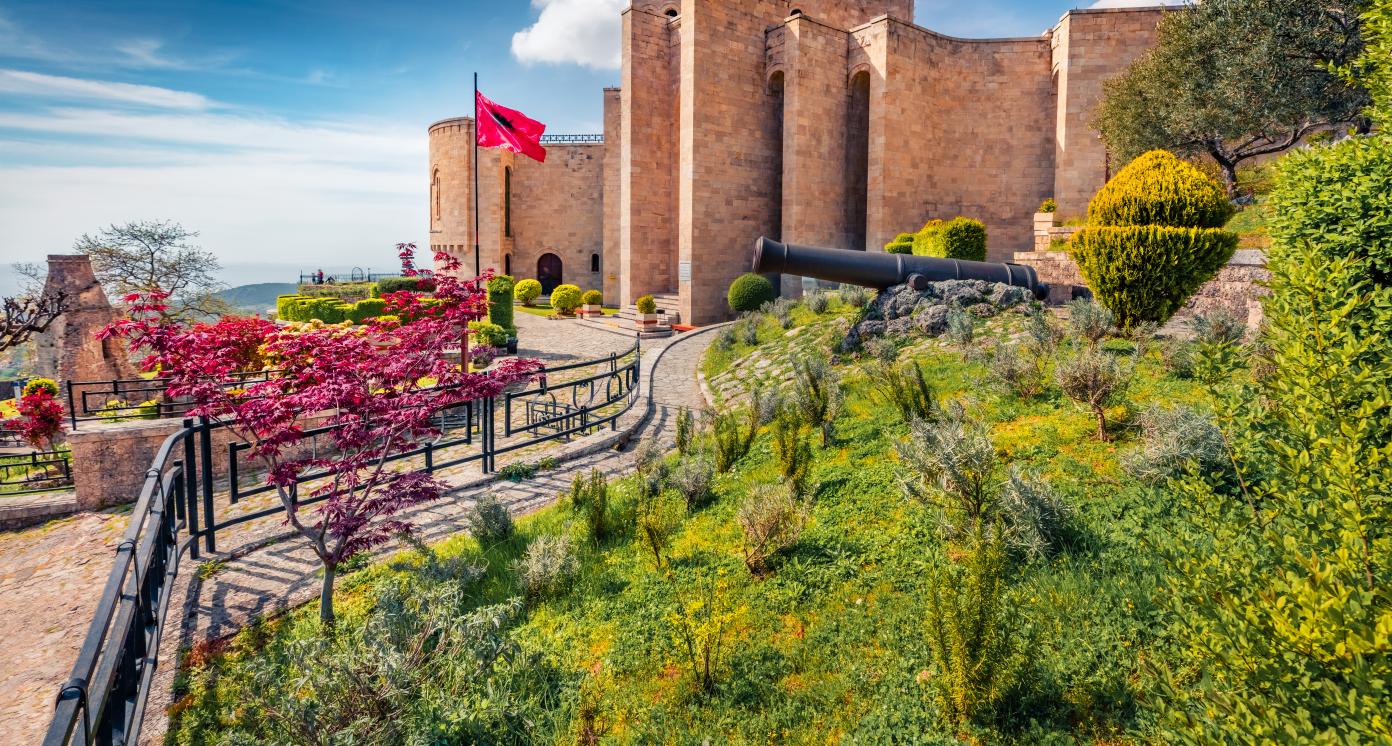Agro-Tourism
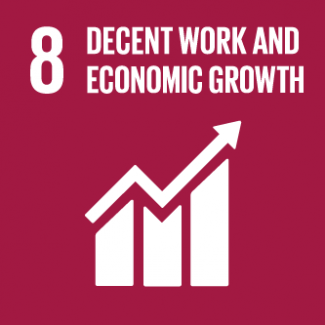
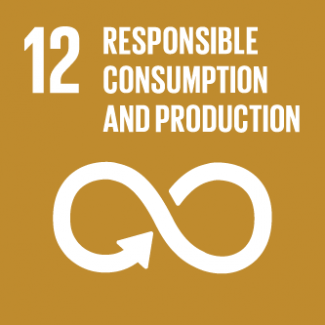
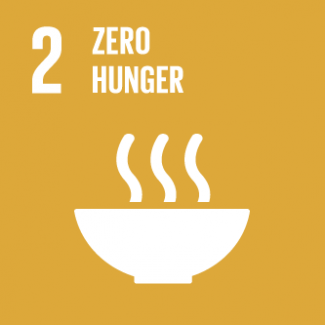
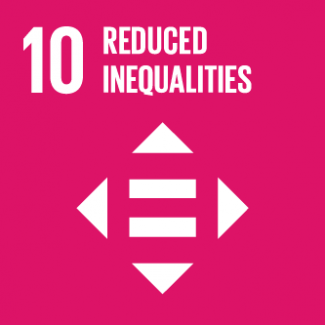
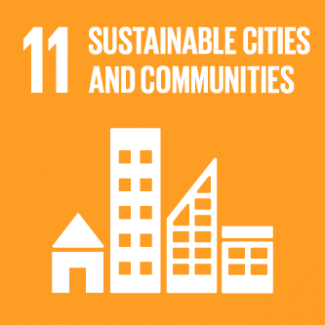
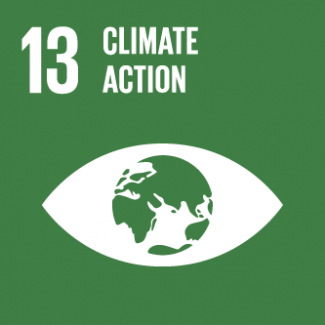
Business Model Description
Set up an agro-tourism businesses that combine sustainability, local culinary experiences and authentic rural engagements by networking with local and international organizations to support sustainable agritourism development, stimulate local economies, and preserve Albania's unique rural traditions. Potential revenue streams include farm visits, accommodations, agricultural products and agro-tourism activities.
Expected Impact
Invigorate rural economies, preserve traditional agricultural practices, and promote sustainable tourism, thereby fostering economic growth, cultural preservation, and environmental stewardship in the region.
How is this information gathered?
Investment opportunities with potential to contribute to sustainable development are based on country-level SDG Investor Maps.
Disclaimer
UNDP, the Private Finance for the SDGs, and their affiliates (collectively “UNDP”) do not seek or solicit investment for programmes, projects, or opportunities described on this site (collectively “Programmes”) or any other Programmes, and nothing on this page should constitute a solicitation for investment. The actors listed on this site are not partners of UNDP, and their inclusion should not be construed as an endorsement or recommendation by UNDP for any relationship or investment.
The descriptions on this page are provided for informational purposes only. Only companies and enterprises that appear under the case study tab have been validated and vetted through UNDP programmes such as the Growth Stage Impact Ventures (GSIV), Business Call to Action (BCtA), or through other UN agencies. Even then, under no circumstances should their appearance on this website be construed as an endorsement for any relationship or investment. UNDP assumes no liability for investment losses directly or indirectly resulting from recommendations made, implied, or inferred by its research. Likewise, UNDP assumes no claim to investment gains directly or indirectly resulting from trading profits, investment management, or advisory fees obtained by following investment recommendations made, implied, or inferred by its research.
Investment involves risk, and all investments should be made with the supervision of a professional investment manager or advisor. The materials on the website are not an offer to sell or a solicitation of an offer to buy any investment, security, or commodity, nor shall any security be offered or sold to any person, in any jurisdiction in which such offer would be unlawful under the securities laws of such jurisdiction.
Country & Regions
- Albania: Kukës
- Albania: Shkodër
- Albania: Korçë
Sector Classification
Services
Development Need
In 2021, Albania's services sector experienced remarkable growth, comprising 86% of the country's businesses, employing 64% of the workforce, and contributing 65.1% to the total turnover. However, this contribution falls short of the OECD average, where services typically account for around 70% of GDP. To fully harness the economic and social potential of the sector, it is crucial to prioritize innovative measures aimed at enhancing productivity (11, 12, 13, 14).
Policy priority
As per the National Strategy for Development and European Integration 2022-2030, Albania is committed to enhancing its service sector through comprehensive infrastructure improvements in transport, electricity, water supply, and waste management. Additionally it targets an 8.4% reduction in final energy consumption, with a projected 195.2 ktoe by 2030 in the services sector (3, 15).
Gender inequalities and marginalization issues
21.6% of women are employed in the services sector, however a significant portion of women refrain from entering the workforce due to domestic responsibilities (18%) or academic commitments (22.3%), highlighting the enduring impact of societal gender expectations (10).
Investment opportunities introduction
The Albanian government prioritizes attracting foreign direct investments, particularly in the services sector, notably tourism. Albania's service exports, mainly tourism-driven, have surged fivefold, outpacing EU-11 and WB-5 economies (17, 18).
Key bottlenecks introduction
Albania's services sector faces several significant challenges, including issues related to poor education quality resulting in skill gaps, infrastructure deficiencies in electricity and transportation, limited access to finance for small and medium-sized enterprises (SMEs), and regulatory barriers identified by the OECD Services Trade Restrictiveness Index, encompassing restrictions on foreign entry and obstacles to healthy competition (14).
Hospitality and Recreation
Development need
Despite facing challenges such as earthquakes and the impact of COVID-19, Albania's tourism sector received a substantial USD 210 million investment in 2021 (7.5% of total investments). Rich history and culture offer untapped potential, but infrastructural issues persist. There's potential for tourism's GDP contribution to reach 9.3% by 2028, yet blue and cultural tourism are underexplored (1,3,4,6,7).
Policy priority
Under the 2021-2025 Government Program, tourism is defined as a growth driver in all its forms, encompassing marine and mountain development, including agrotourism. Albania aims to transform the sector into a significant contributor, comprising 24% of total output at USD 5,5 billion by 2030 and by 2028 tourism investments are expected to rise to 8.2%. Furthermore, strengthening rural tourism and in particular the agrotourism value chain is a priority (2,3,4).
Gender inequalities and marginalization issues
In Albania's tourism sector, women often occupy informal and low-skilled roles, curtailing their progression. While female entrepreneurship is emerging in tourism, the absence of comprehensive data hinders policy development. Women grapple with limited access to market data, legal backing, as well as negative cultural norms hindering their participation (8, 9).
Investment opportunities introduction
Albania aims to attract 10 million tourists by 2030. In 2021, tourism contributed to 17.4% of the GDP and employed 7.7% of the workforce, with projections indicating this figure will rise to 8.8% by 2028. Tax incentives, including a 10-year property tax exemption for premier hotel brands and a 6% VAT for five-star hotels/resorts and agro-tourism facilities, are positioned to attract investors (3, 4, 16).
Key bottlenecks introduction
Albania's tourism sector faces significant challenges, including inadequate accommodations, the absence of international hotel brands, limited tourist infrastructure, a short tourist season, informality, ownership issues, insufficient investment, lack of sustainable tourism practices, and restricted local community involvement and training (4, 5).
Hotels and Lodging
Pipeline Opportunity
Agro-Tourism
Set up an agro-tourism businesses that combine sustainability, local culinary experiences and authentic rural engagements by networking with local and international organizations to support sustainable agritourism development, stimulate local economies, and preserve Albania's unique rural traditions. Potential revenue streams include farm visits, accommodations, agricultural products and agro-tourism activities.
Business Case
Market Size and Environment
< USD 50 million
As of 2022, Albania has 39 accommodation units specifically for agrotourism.
Albania's agricultural sector forms 19.3% of its GDP, with 85% being family farms. The "Made in Albania" brand boasts an export value of USD 5 million, targeting USD 1 billion by 2030 (23).
As of 2022, the Ministry of Tourism and Environment has licensed and certified 39 accommodation units specifically for agrotourism. There are more than 300 guesthouses and 100 agritourism operators nation-wide (1, 40).
According to a key development partner providing project financing to tourism projects in Albania, the market size of the agro-tourism sub-sector in Albania is reported to be less than USD 50 million (22).
Indicative Return
< 5%
< 5%
5% - 10%
Agrotourism investments can produce returns up to 5% measured in terms of profit, IRR and ROI according to a key development partner providing project financing to tourism projects (22).
Mrizi i Zanave, an agritourism center located in Fishtë, near Lezha, has seen an investment of about EUR 300,000 (USD 318,000) and achieved a turnover of EUR 650,000 (USD 689,000) with the profit margin at about 9% (27).
Investment Timeframe
Short Term (0–5 years)
The average pay-back period for investments in agro-tourism is calculated as short-term investment time-frame according to a key development partner providing project financing to tourism projects (22).
Ticket Size
< USD 500,000
Market Risks & Scale Obstacles
Market - Highly Regulated
Capital - Requires Subsidy
Business - Supply Chain Constraints
Impact Case
Sustainable Development Need
Agriculture is Albania's primary source of employment, contributing around 20% to its GDP and employing 34% of the workforce. However, informality hinders standardization and fosters unfair competition. Agritourism can establish short value chains, aiding market formalization while helping diversify farmers' income (6, 29, 46).
Absence of diverse and comprehensive offers beyond coastal tourism in Albania limits the potential for increased tourist overnight stays and spending, and a balanced distribution in the territory. Tourism businesses further face issues related to limited transportation infrastructure, and unstable electricity and water supply. Addressing these infrastructure gaps is crucial for agrotourism developments (13, 25, 30).
Improving rural economies requires diversifying activities, which means finding innovative uses for existing resources beyond traditional agriculture. Giving priority to agritourism as a source of income is particularly important, especially for small and medium-sized farms (31).
Gender & Marginalisation
Addressing gender disparities and promoting labor formality in Albania's agricultural sector is imperative. Women constitute 61.0% of the informal workforce, highlighting the need for initiatives to enhance gender equality and formalize labor in the sector, especially in small accommodation facilities (10).
Tourism demand in Albania is highly seasonal and concentrated in coastal areas, limiting balanced economic growth, particularly in rural northern regions, which experience the highest income gap compared to the national average (47).
Expected Development Outcome
Agrotourism investments can tackle informality leading to standardization and a more equitable competitive landscape, benefiting both the sector and the broader economy.
Investments in agritourism establishments can address infrastructure challenges, such as inadequate roads, unstable utility supplies, and insufficient public spaces, enhancing the tourism experience, provide a stable environment for tourism-related enterprises.
Prioritizing agritourism as an income source, especially for small and medium-sized farms, would diversify rural economies and enhance sustainable development.
Gender & Marginalisation
Promotion of agri-tourism will lead to reduced development gap between Tirana and other regions through fostering sustainable and inclusive growth in rural areas, where local residents near establishments will benefit from enhanced employment opportunities providing both direct and indirect services.
Agritourism investments can help tackle gender disparities and promoting labor formality within Albania’s agricultural sector where women make up 61.0% of the informal workforce (10).
Primary SDGs addressed

8.9.1 Tourism direct GDP as a proportion of total GDP and in growth rate
In 2021, tourism drove 17.4% of GDP. The direct contribution of Travel & Tourism to GDP is expected to grow by 4.03% per year (3, 18).
The National Strategy for Sustainable Tourism Development anticipates that by 2028, the tourism sector, with its growing contribution, could constitute up to 9.3% of the GDP (4).

12.2.2 Domestic material consumption
In 2019, the domestic material consumption in Albania amounted to 31.6 million tonnes, which included approximately 1.436 million tonnes of fossil fuels (32).
Long-term objective is a decrease in the rate of domestic material consumption per capita (49).

2.1.1 Prevalence of undernourishment
2.1.2 Prevalence of moderate or severe food insecurity in the population, based on the Food Insecurity Experience Scale (FIES)
Prevalence of undernourishment recorded at 4.1% in 2021 (32).
Prevalence of moderate or severe food insecurity recorded as 30.2% in 2021, 34% for women and 27.5% for men (32).
Globally, the long-term objective for this indicator is a value of 2.5 (48).
The government has introduced the “One Health” strategy based on the principle of "Health in every policy" and "sustainable development" aiming to create structures and incentives to coordinate measures and policies in a number of sectors, including ensuring food security (2).
Secondary SDGs addressed



Directly impacted stakeholders
People
Gender inequality and/or marginalization
Planet
Corporates
Public sector
Indirectly impacted stakeholders
People
Gender inequality and/or marginalization
Planet
Corporates
Outcome Risks
The overcrowding of rural areas during peak tourist seasons poses a significant threat to the environment due to the excessive use and depletion of local natural resources, undermining long-term sustainability (28).
Tourists' negative environmental behaviours, disregarding conservation efforts and treating tourist services as public goods, can pose ecological threats, potentially harming the environment, and necessitating environmentally-friendly behaviours (28).
Impact Risks
Predominance of family-owned agrotourism operators can create human resource risks and unclear definitions of roles, potentially affecting the quality of offered services (27).
Agritourism operators in Albania encounter legal challenges due to insufficient knowledge of laws, taxation, and food safety, while data-related issues, such as a lack of reliable data, hinder informed decision-making for production and investment, affecting competitiveness factors like value chain organization and stakeholder identification (13, 27).
The dispersed location of agritourism farms in Albania, often on individual landowners' properties, limits proximity to tourist attractions, hindering the formation of cohesive agritourism clusters around natural landmarks and affecting the sector's organization and growth (26).
Agritourism destinations in Albania, particularly in the northern regions, confront infrastructure challenges, including insufficient road networks, the absence of amenities like gas stations and public transportation, and imprecise mapping, which collectively impede access, affordability, and logistical planning for tourists visiting remote farms (25, 26).
Impact Classification
What
Agrotourism investments will contribute to economic growth for rural communities, sustainable land use, cultural preservation, increased tourism revenue, diversified income sources, and potential environmental benefits.
Who
Beneficiaries include tourists, local farmers, rural communities, and encompassing biodiversity.
Risk
Legal and regulatory challenges, resource mismanagement, market fluctuations, environmental degradation, and availability of qualified personnel can hinder impact.
Contribution
Agrotourism can, contributes to tourism growth and economic development, in line with the government's target to increase tourism sector's contribution to 24% of total output, equating to USD 5.5 billion by 2030 (4).
How Much
Agrotourism investments can contribute to government's goal to attract 10 million tourists by 2030, driving substantial impact (3).
Impact Thesis
Invigorate rural economies, preserve traditional agricultural practices, and promote sustainable tourism, thereby fostering economic growth, cultural preservation, and environmental stewardship in the region.
Enabling Environment
Policy Environment
National Pathways for Sustainable Food Systems, 2021: includes the development of agritourism and short value chains as mechanisms for rural development among the Republic's key priorities for the next ten years (35).
Rural Development Programme 2021-2027 Under Instrument for Pre-Accession Assistance (IPA), 2022: includes the development of tourism activities as part of key activities to diversify economic activities in rural areas, including rural and agro-tourism as sub-sectors with promising potential (40).
Government Program 2021-2025, 2021: aims to position Albania as the first choice as a tourist destination in the region by combining numerous sub-sector elements including agritourism and culinary tourism, laying out support mechanisms to increase the number of agritourism businesses (2).
National Strategy for Development and European Integration 2022-2030, 2023: mentions strengthening rural tourism and in particular the agritourism value chains, among the key issues to be addressed for the support provided by the European Union (3).
Financial Environment
Financial incentives: The government's 100 villages revitalization project is designed to boost rural tourism through development and investment networks in agritourism and ecotourism. The government's program for 2021-2025 also aims to turn countryside houses into guest houses, and supports returnees with grants of EUR 5000 (USD 5371) (41, 2).
Fiscal incentives: Agro-tourism facilities are eligible for a reduced VAT of 6%, if they abide by the set criteria of having accommodation capacities from 6-30 rooms (18).
Other incentives: The Sustainable Rural Development Programme, implemented by GIZ and co-financed by Swiss Agency for Development and Cooperation (SDC) providing USD 4.5 million, aims to promote rural tourism through agritourism and destination management improving the capabilities of public and private institutions, particularly towards EU Accession (42, 46).
Regulatory Environment
Tourism Law No.93/2015: article 4 provides for the definition of agritourism as part of rural tourism while introducing new criteria for entities looking to engage in agritourism activities including the necessities of having a farm, appropriate accommodation, provision of food and beverage, and entertainment and education activities (36).
Law on Strategic Investments of Albania, 2016: lays down rules for introducing special favourable, easing or expediting administrative procedures for supporting and providing services to the investors in order to promote and attract strategic domestic and foreign investments in the sectors with a high potential for the development including tourism and agriculture, as defined in Article 8 (37).
Decision No. 22 On the approval of the criteria and procedures for the certification of agritourism activity and the construction of structures in its function, 2018: regulates and promotes agritourism in Albania defining it as a hospitality activity taking place in farms or agricultural units with the aim of attracting visitors, often allowing them to participate in agricultural activities or related experiences in a rural setting. It also establishes a certification process to ensure compliance with the set criteria, offering benefits to certified operators (38).
Decision N. 125 on determining the basic criteria of sectors to be supported and the amount of financing from the Program Fund for Agriculture and Rural Development, for the year 2023, March 2023: approves the 2023 budget for the Ministry of Agriculture and Rural Development, item "Transfer to family budgets" (economic account 606), to be used for increasing competitiveness, registration, construction of markets, energy efficiency, and training and transfer of knowledge, for agricultural and livestock products (39).
Marketplace Participants
Private Sector
Mrizi i Zanave, Sofra Kolonjare, Uka Farm, Kazerma e Cerenit, Bujtina Tomadhe, Fustanella Farm, Agroturizem Huqi, Kodra e Kuajve, Kantina Duka, Bujtina Xhebro, Agroturizem Gjepali, Hoteli i Gjuetise, Farma Sotira, Logu i Harushave.
Government
Ministry of Tourism and Environment, Ministry of Culture, State Agency for Strategic Programming and Aid Coordination, Ministry of Economy, Culture, and Innovation, Ministry of Infrastructure and Energy, Albanian Investment Development Agency, Albania Investment Council.
Multilaterals
European Bank for Reconstruction and Development (EBRD), European Union, United Nations Development Programme (UNDP), UN Women, European Investment Bank, World Bank Group, United Nations Educational, Scientific and Cultural Organization (UNESCO), German Development Agency (GIZ), Swiss Agency for Development and Cooperation (SDC), USAID, SIDA.
Non-Profit
Albanian Agritourism Association, Foreign Investors Association of Albania (FIAA), The Visit Gjirokastra Association (VGA), Risi Albania, Albanian Tourism Association (ATA), Albanian Tourism Union, Albanian Tour Operators Association.
Target Locations
Albania: Kukës
Albania: Shkodër
Albania: Korçë
References
- (1) UNDP. 2022. Tourism and Hospitality in Albania 2022. https://www.undp.org/sites/g/files/zskgke326/files/2022-12/HOSPITALITY%20AND%20TOURISM%20IN%20ALBANIA_FINAL.pdf
- (2) Republic of Albania Council of Ministers. 2021. 2021 - 2025 Government Program. https://kryeministria.al/wp-content/uploads/2021/10/Government-Program-2021-2025.pdf
- (3) State Agency for Strategic Programming and Aid Coordination (SASPAC). 2023. National Strategy for Development and European Integration (NSDEI) 2022-2030. Available Upon Request.
- (4) National Strategy for Sustainable Tourism Development 2019 - 2023. 2019. https://turizmi.gov.al/wp-content/uploads/2019/12/National-Tourism-Strategy-2019-2023-EN.pdf
- (5) Pojani, E., & Grabova, P. 2022. Discussing Sustainable Business Practices – The Case of Tourism Sector in Albania. 80th International Scientific Conference on Economic and Social Development https://www.researchgate.net/profile/Venelin-Terziev/publication/360112360_Spiritual_leaders_of_the_Bulgarian_nation/links/6262c0c9ee24725b3ebde76d/Spiritual-leaders-of-the-Bulgarian-nation.pdf#page=216
- (6) RisiAlbania. 2014. Market System Analysis: Tourism sector in Albania and business constraints to growth. http://risialbania.al/index/wp-content/uploads/2016/04/Tourism-Market-System-Analysis.pdf
- (7) Shahidsaless, R. et al. 2023. Tourism 2.0 in Albania: A New Opportunity for Resilient Growth. World Bank Blogs.https://blogs.worldbank.org/europeandcentralasia/tourism-20-albania-new-opportunity-resilient-growth
- (8) European Commission. 2018. Instrument for Pre-Accession Assistance - Albania EU for Economic Development - Tourism-led, local, economic development, with a focus on Cultural Heritage. https://neighbourhood-enlargement.ec.europa.eu/system/files/2018-12/ipa_2018_040215_al_05_eu_for_economic_development.pdf
- (9) UN Women. 2022. Factsheet Albania Women Entrepreneurs. https://eca.unwomen.org/sites/default/files/Field%20Office%20ECA/Attachments/Publications/2021/8/Expo%20Report/ALBANIA_Factsheet-min.pdf
- (10) UN Women 2020. Albania Country Gender Equality Brief 2020.Prepared by Monika Kocaqi, Agustela Nini-Pavli, Ani Plaku and Dolly Wittberger.https://eca.unwomen.org/sites/default/files/Field%20Office%20Albania/Attachments/Publications/2020/12/CGEB%20Albania_REPORT_1.pdf
- (11) World Bank. 2023. Services, value added (% of GDP) - Albania https://data.worldbank.org/indicator/NV.SRV.TOTL.ZS?locations=AL
- (12) INSTAT. 2023. Final results on Structural Survey of Enterprises, 2021. https://www.instat.gov.al/media/11242/asn-2021-anglisht.pdf
- (13) IFC. 2022. Country Private Sector Diagnostic: Creating Markets in Albania. https://www.ifc.org/content/dam/ifc/doc/mgrt/cpsd-albania.pdf
- (14) OECD. 2021. Competitiveness in South East Europe 2021: A Policy Outlook, Competitiveness and Private Sector Development, OECD Publishing, Paris. https://www.oecd-ilibrary.org/docserver/dcbc2ea9-en.pdf?expires=1698310409&id=id&accname=guest&checksum=2EDC18F70C88D77AC14FAC80D00A1FDA
- (15) Ministry of Infrastructure and Energy of Albania. 2011. Draft of the National Energy and Climate Plan of the Republic of Albania. https://www.energy-community.org/dam/jcr:a0c2b8a8-96c8-4423-993a-537cf51daa65/Draft_NECP_AL_%202021.pdf
- (16) United States Department of State. 2023. 2023 Investment Climate Statements: Albania. https://www.state.gov/reports/2023-investment-climate-statements/albania/
- (17) EBRD. 2020. Albania Country Strategy 2020-2025. https://www.ebrd.com/strategy-and-policy-coordination/strategy-for-albania.pdf
- (18) Albanian Investment Development Agency (AIDA). 2023. Albania Calls A Country of Opportunities. https://ambasadat.gov.al/greece/sites/default/files/Albania_Calls_2023.pdf
- (19) Mrizi Zanave. N.d. https://agrotourism.gov.al/mrizi-i-zanave-fishta-lezha-county/
- (20) Sofra Kolonjare. N.d. https://agrotourism.gov.al/sofra-kolonjare/
- (21) Uka Farm. N.d. https://agrotourism.gov.al/uka-farm/
- (22) UNDP Follow-Up Survey for the Albania SDG Investor Map. September, 2023.
- (23) Food and Agriculture Organization of the United Nations. June 2023. Presentation on National Dialogue on Sustainable Food Systems of Albania. Available Upon Request.
- (24) PWC. 2023. Albania: Corporate - Other taxes. https://taxsummaries.pwc.com/albania/corporate/other-taxes
- (25) UNDP Stakeholder Consultation with an Agrotourism Corporation in Albania, August 2023.
- (26) Besra, N. 2018. Agritourism in Albania: Trends, Constraints, and Recommendations. Center for International Development, Harvard University. https://growthlab.hks.harvard.edu/sites/projects.iq.harvard.edu/files/growthlab/files/besra_agritourism_nov9.pdf
- (27) Creative Business Solution (CBS). 2019. Agritourism Sector in Albania: Development Potentials and Financial Needs. https://docplayer.net/214877434-Agritourism-sector-in-albania-development-potentials-and-financial-needs.html
- (28) Moraru, R.-A., Simeanu, C., & Șumovschi, D. 2022. The Environmental Impacts of Rural Tourism. Lucrări Ştiinţifice. https://www.uaiasi.ro/revagrois/PDF/2022-1/paper/37.pdf
- (29) International Labour Office. 2014. International Labour Conference, 103rd Session, 2014, Report V(1): Transitioning from the informal to the formal economy
- (30) UNDP ICPSD – Plenary Group for the Smart Specialization Strategy on Tourism Workshop. June 2023.
- (31) Pitrova, J. et al. 2020. The economic impact of diversification into agritourism. International Food and Agribusiness Management Review. https://brill.com/view/journals/ifam/23/5/article-p713_713.xml
- (32) United Nations Department of Economic and Social Affairs. 2020. SDG Indicators Database. https://unstats.un.org/sdgs/dataportal/database.
- (33) Republic of Albania Council of Ministers. 2018. Voluntary National Review on Sustainable Development Goals. https://sustainabledevelopment.un.org/content/documents/20257ALBANIA_VNR_2018_FINAL2.pdf
- (34) Albania Demographic and Health Survey 2017-18. 2018. Institute of Statistics, Institute of Public Health, Tirana, Albania. The DHS Program, ICF. https://dhsprogram.com/pubs/pdf/FR348/FR348.pdf
- (35) Republic of Albania. 2021. National Pathways for Sustainable Food Systems, Albania. https://www.unfoodsystemshub.org/docs/unfoodsystemslibraries/national-pathways/albania/2021-09-01-en-fss-albania-national-pathways-for-sustainable-food-systems.doc?sfvrsn=d7deeade_1
- (36) Lexology. November, 2023. Draft Law “On Amending the Law No.93/2015 ‘On Tourism’, as amended”. https://www.lexology.com/library/detail.aspx?g=79e9636a-3058-4c30-8dec-a5983cc3953e
- (37) Food and Agriculture Organization of the United Nations. January, 2016. Law on Strategic Investments of Albania 2016. https://www.fao.org/faolex/results/details/en/c/LEX-FAOC203924/.
- (38) Farmer's Portal. Legislation-Agrotourism. https://agroalbania.al/en/legjislacion_agroturizem.php.
- (39) Food and Agriculture Organization of the United Nations. 2023. Albania - Decision n. 125, dated 1 March 2023 determining the basic criteria of sectors to be supported and the amount of financing from the Program Fund for Agriculture and Rural Development, for the year 2023. https://www.fao.org/faolex/results/details/en/c/LEX-FAOC221202.
- (40) Ministry of Agriculture. 2022. Rural Development Programme 2021-2027. https://ipard.gov.al/wp-content/uploads/2021/03/Programi-IPARD-III_2021-2027_English.pdf.
- (41) Glbal FDI Reports. Albania’s 100 Villages revitalization project. https://albania.globalfdireports.com/article/albanias-100-villages-revitalization-project/
- (42) GIZ. June, 2023. Promoting rural areas in Albania as places to live and do business - Sustainable Rural Development II. https://www.giz.de/en/worldwide/124362.html.
- (43) Farmer's Portal. Agrotourism. https://agroalbania.al/en/skeda_agroturizem.php.
- (44) USAID. Fact Sheet: Agritourism in Albania 2016-2019. https://2017-2020.usaid.gov/albania/news-information/fact-sheets/fact-sheet-agrotourism-albania.
- (45) European Academic Research. May, 2013. Agrotourism - A Sustainable Development for Rural Area of Korca. https://euacademic.org/UploadArticle/15.pdf.
- (46) Swiss Agency for Development and Cooperation (SDC). September, 2023. Albania: Sustainable Rural Development. https://www.eda.admin.ch/deza/en/home/countries/albania.html/content/dezaprojects/SDC/en/2021/7F10758/phase1?oldPagePath=/content/deza/en/home/laender/albanien.html,%20100%20Villages.
- (47) OECD. 2016. Fostering Tourism Competitiveness in South East Europe. https://www.oecd.org/south-east-europe/programme/Fostering_Tourism_Competitiveness_South_East_Europe.pdf.
- (48) Sachs, J.D., Lafortune, G., Fuller, G., Drumm, E. 2023. Implementing the SDG Stimulus. Sustainable Development Report 2023. https://dashboards.sdgindex.org/profiles/albania/indicators.
- (49) INSTAT. Sustainable Development Goals. https://www.instat.gov.al/en/sdgs/.















